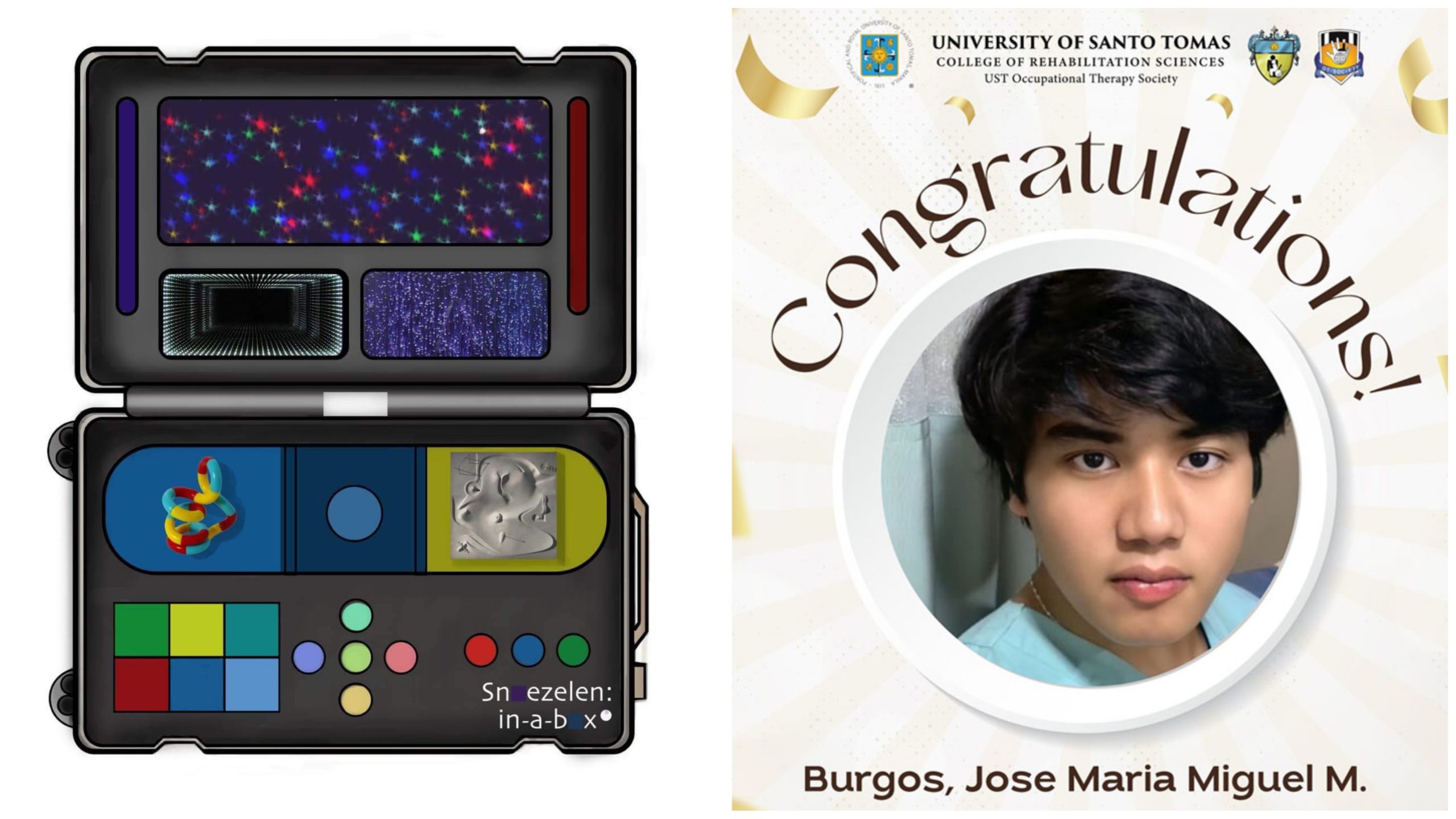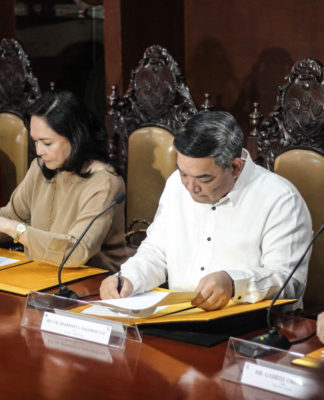A portable multisensory room for children with sensory processing disorder, co-created by a Thomasian, won third place in the Southeast Asian leg of the Harvard Innovation Challenge (HIC).
Occupational therapy sophomore Jose Maria Miguel Burgos, along with his teammates Sherry Lee, Reem Barakat, and Crystalia Evelyn Liaw came up with the idea of “Sensory-in-the-box,” a portable alternative to usually expensive multisensory rooms.
Burgos said his group’s proposal drew inspiration from the Snoezelen brand of multisensory environments.
Snoezelen multisensory environments are spaces that help reduce agitation and anxiety and therapeutically promote intellectual activity.
These immersive rooms, specifically designed to develop a person’s senses, are used to treat people with sensory processing disorder, a condition that affects how the brain reacts to and processes stimuli.
Burgos’s team proposed a “carry-on luggage” that makes use of the sensory integration approach in occupational therapy called Ayres Sensory Integration (ASI).
According to the American Occupational Therapy Association, ASI is a process that helps people “register, modulate and discriminate sensations” received by the five senses of the body.
“As specialized multi-sensory facilities are exclusive and scarce, I hope to provide a contextualized solution that Filipino families can use for their child with sensory processing disorders,” Burgos told the Varsitarian.
“It breaks my heart that these kids are left out from their typical developing playgroups (due to the pandemic). Therefore, if an environment or modality can help them find a sense of normalcy and wellbeing, then I really think it’s worth pursuing,” he said.
Effective sensory integration can help develop the skills needed to perform occupational roles in society, he said.
Burgos said the group intends to implement the project through Bayesena Dreams Studio, a “healthcare-focused lifestyle startup company” he co-founded.
The HIC is a conference that enjoins high school and university students “to create innovative solutions” to issues hounding their home regions.
Delegates were tasked to focus on two sectors this year, namely, “Urbanization & Industrialization” and “Well-being & Equality.”
Burgos’s group competed against 15 other teams in the conference, which was held from July 23 to 25.















